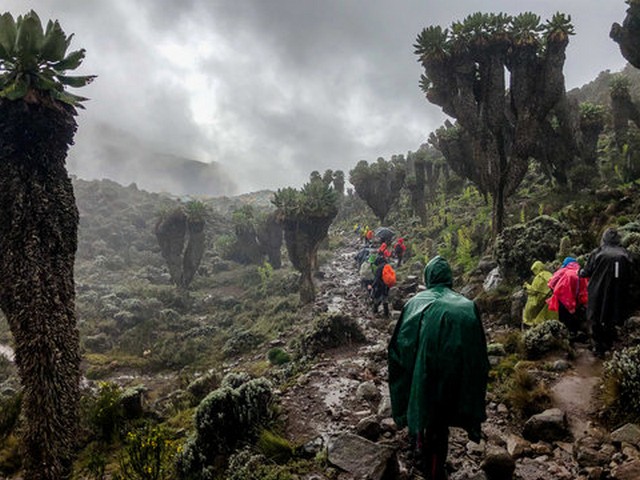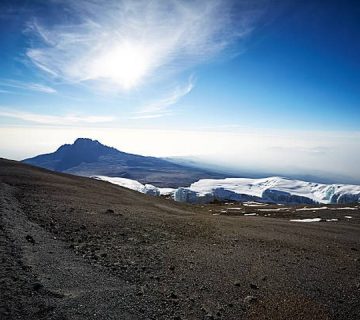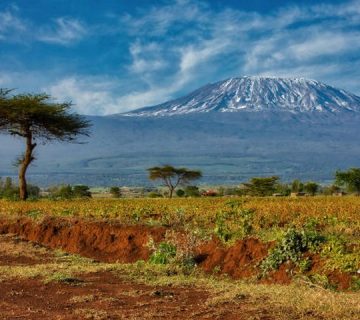Kilimanjaro Trekking and Cultural Etiquette: A Journey of Respect and Adventure
Tanzania, a land of rich cultural heritage and majestic landscapes, invites adventurers from around the globe to experience the awe-inspiring heights of Mount Kilimanjaro. At the Kilimanjaro Centre for Trekking and Ecotourism (KCTE), we believe that climbing Mount Kilimanjaro is not just about reaching the summit; it’s about embracing the culture, respecting local customs, and becoming part of an unforgettable ecological experience. In this blog post, we offer you a compass to navigate both the physical ascent and the cultural landscape, ensuring your trek is respectful, enriching, and transformative.
Understanding the Cultural Tapestry of Kilimanjaro
The People of Kilimanjaro
Kilimanjaro is not only Africa’s tallest peak but also a symbol of the diverse cultural mosaic that surrounds it. The Chagga people, native to the region, are known for their rich traditions, agriculture, and warm hospitality. Engaging with the Chagga community offers trekkers a unique glimpse into the vibrant life at the foot of this great mountain.
Importance of Respect and Etiquette
As you embark on your journey to conquer Kilimanjaro, remember that you are stepping into a space that is sacred to many. Respect for local traditions, norms, and the environment is paramount. By understanding and adhering to cultural etiquette, you enrich your experience and foster mutual respect and communication between you and your hosts.
Planning Your Trek: Kilimanjaro’s Routes and Cultural Stops
Choosing the Right Route
Kilimanjaro offers several routes, each with its own unique characteristics and cultural significance. Whether you choose the Marangu, Machame, or Lemosho route, KCTE ensures that you not only challenge yourself but also have opportunities to engage with local culture. Our guided treks include stops at local villages and cultural sites, where you can learn from the community and participate in traditional activities.
Cultural Activities Along the Way
Imagine starting your trek with a lesson in Chagga folklore, or winding down a day’s hike with a visit to a coffee plantation where you can learn about and participate in the local coffee-making process. These activities are designed not just to educate but to inspire a deeper connection with the land and its people.
Respecting Nature and Culture While Trekking
Environmental Stewardship
Climbing Kilimanjaro is a privilege that comes with responsibility. The principles of Leave No Trace should guide your journey—pack out what you pack in, stay on designated paths, and respect wildlife habitats. KCTE champions eco-friendly practices that ensure the mountain and surrounding areas remain pristine for generations to come.
Cultural Sensitivity
When interacting with local communities, a few simple acts of respect can go a long way. Dress modestly, learn basic greetings in Swahili, and always ask before taking photographs. Our guides, who are natives of the area, provide valuable insights into dos and don’ts, helping you navigate cultural interactions gracefully.
Equip Yourself for Success
Physical Preparation
Trekking Kilimanjaro is demanding. Adequate physical preparation cannot be overstated. Engage in cardiovascular and strength training exercises months before your trip. KCTE offers preparatory advice and resources to ensure you are physically ready for the challenge.
Mental Readiness
Understanding and respecting cultural norms requires mental openness and flexibility. Be prepared to embrace differences, learn from new experiences, and adapt to the unexpected. This mental readiness not only enhances your trek but also deepens your overall travel experience.
Kilimanjaro Trekking with KCTE: Why Choose Us?
Expertise and Experience
At KCTE, we pride ourselves on providing superior guided treks that combine adventure with cultural immersion. Our guides are local experts who not only know the mountain’s paths but also its stories and traditions.
Comprehensive Support
From the moment you book with us until you descend the mountain, KCTe offers unmatched support. We handle logistics, provide cultural training, and ensure safety measures are top-notch, allowing you to focus on the experience.
Sustainable and Responsible Tourism
We are committed to sustainable practices that benefit both the environment and local communities. By choosing KCTE, you contribute to conservation efforts and community upliftment, ensuring that your trek has a positive impact.
Summary and Call to Action
Embarking on a Kilimanjaro trek is an adventure of a lifetime. It’s an opportunity to challenge yourself physically while engaging deeply with the rich cultural tapestry of Tanzania. Remember, a successful climb is measured not just by reaching the summit, but by the respect and understanding you gain along the way.
Are you ready to experience Kilimanjaro in the most respectful and enriching manner? Book your climb with the Kilimanjaro Centre for Trekking and Ecotourism (KCTE) and step into a journey that respects both the natural and cultural heritage of this magnificent mountain.
FAQ
What should I wear during my Kilimanjaro trek?
Opt for comfortable, moisture-wicking clothing for the trek. For cultural site visits, modest apparel is recommended.
How can I learn basic Swahili greetings before my trip?
KCTE provides pre-trip resources, including basic language guides, to help you prepare for cultural interactions.
What is the best time of year to climb Kilimanjaro?
The best times to climb Kilimanjaro are during the dry seasons: January to mid-March and June to October.
How do I book my trek with KCTE?
Visit our website or contact our booking office directly. We’re here to help you plan every step of your Kilimanjaro adventure.
Embark on your journey with respect, and embrace the beauty of Kilimanjaro and its communities. With KCTE, your adventure awaits – a climb that respects, teaches, and inspires.




